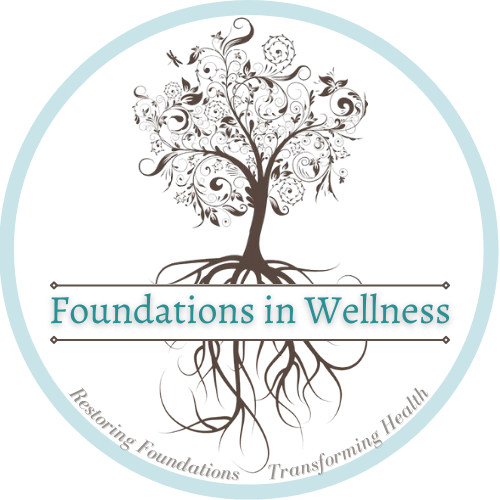
Introduction
Digestion is a fundamental aspect of overall health, yet it often becomes a topic shrouded in discomfort and typically avoided in conversations. This crucial bodily function not only breaks down the food we consume into nutrients but also fuels our bodies and facilitates waste elimination. However, when issues like gastroesophageal reflux (GERD), irritable bowel syndrome (IBS), lactose intolerance, and bloating occur, they can severely disrupt daily life and well-being (Petersen & Phillips, 2021).
The Vital Role of Effective Digestion
Nutrient Absorption: Efficient digestion is crucial for the absorption of vitamins, minerals, proteins, and fats, which are essential for cellular function, energy, and overall health (Johnson, 2022).
Waste Elimination: The digestive system plays a critical role in expelling unwanted and toxic substances from the body, vital for disease prevention and health maintenance (Lee & Kim, 2020).
Immune Function: A significant portion of the immune system is located in the gut. Proper digestive health supports robust immune defenses, protecting against pathogens and reducing the risk of infection (Smith & Gordon, 2021).
Common Digestive Disorders and Their Impacts
Digestive problems are widespread and can vary greatly in their severity and impact on health:
- Gastroesophageal Reflux Disease (GERD): This condition involves the backflow of stomach acids into the esophagus, causing heartburn and potential damage to the esophagus lining. Chronic GERD can lead to complications like esophageal ulcers or Barrett’s esophagus, a precancerous condition (Davis & Patel, 2022).
- Irritable Bowel Syndrome (IBS): IBS is characterized by a combination of symptoms including abdominal pain, cramping, bloating, and changes in bowel habits (diarrhea and/or constipation). It can severely affect quality of life and lead to anxiety and depression (Thompson et al., 2021).
- Lactose Intolerance: This occurs when the body lacks the enzyme lactase, which is needed to digest lactose, the sugar found in milk. Symptoms include bloating, diarrhea, and gas after consuming dairy products (Green & Brown, 2020).
- Bloating: Often caused by diet, stress, or digestive disorders, bloating can cause discomfort and pain. It may also indicate a more serious underlying health issue, such as an imbalance in intestinal bacteria or a dietary intolerance (Singh & Gupta, 2021).
Strategies to Optimize Digestion

Optimizing digestion involves a multifaceted approach that addresses lifestyle, dietary habits, and underlying health conditions:
Identifying Food Sensitivities:
- Dietary Tracking and Elimination: Keeping a food diary to track what you eat and any symptoms that follow can help identify foods that trigger digestive discomfort. Gradually eliminating these foods can confirm sensitivities and lead to symptom relief (Walters & Jackson, 2022).
Mindful Eating Practices:
- Eating Environment: Creating a calm dining environment, free from distractions like TV or smartphones, enhances digestive function (Martin & Lee, 2023).
- Chewing Thoroughly: Chewing food thoroughly reduces the digestive system’s workload and enhances nutrient absorption. Saliva contains enzymes that begin the digestive process, and thorough chewing makes nutrients more accessible for further digestion (Clark & Howard, 2022).
Supporting Digestive Enzymes:
- Incorporate Natural Enzyme Sources: Foods like pineapple and papaya are rich in natural enzymes that can aid digestion. Regular consumption can help break down proteins and support overall digestive health (Adams & Cox, 2021).
- Enzyme Supplements: If natural intake is insufficient due to dietary restrictions or health conditions, enzyme supplements can be an effective alternative (Brown & Patel, 2021).
Increasing Fiber Intake:
- Variety is Key: Incorporating a range of fiber sources, including fruits, vegetables, whole grains, and legumes, can improve digestion and prevent constipation. Fiber also helps maintain a healthy gut microbiota (Lee & Kim, 2020).
Managing Stress:
- Relaxation Techniques: Regular practice of techniques such as deep breathing, yoga, or meditation can significantly reduce stress, which in turn can alleviate stress-related digestive issues like IBS (Smith & Gordon, 2021).
Exploring Underlying Causes
Understanding the root causes of digestive disturbances is crucial for long-term relief and health:
- Environmental Toxins: Chemicals in the environment can impair digestive health. Being aware of potential toxins in food, water, and household products is essential (Petersen & Phillips, 2021).
- Genetic Factors: Genetic predispositions can affect enzyme production and gut flora composition, influencing digestive health (Johnson, 2022).
- Comprehensive Health Evaluations: Advanced diagnostic tests can help uncover hidden health issues affecting digestion, such as chronic infections, microbial imbalances, or heavy metal toxicity (Davis & Patel, 2022).
Conclusion: A Holistic Approach to Digestive Health
Digestive health is foundational to overall well-being. By implementing strategies to improve digestion, individuals can enhance nutrient absorption, manage waste more effectively, and support their immune system. However, for lasting improvement, it is crucial to understand and address the underlying causes of digestive issues. This may involve adjusting diet, lifestyle, and possibly seeking professional health evaluations to uncover and treat root causes. With the right knowledge and tools, everyone can take steps towards healthier digestion and a better quality of life.


